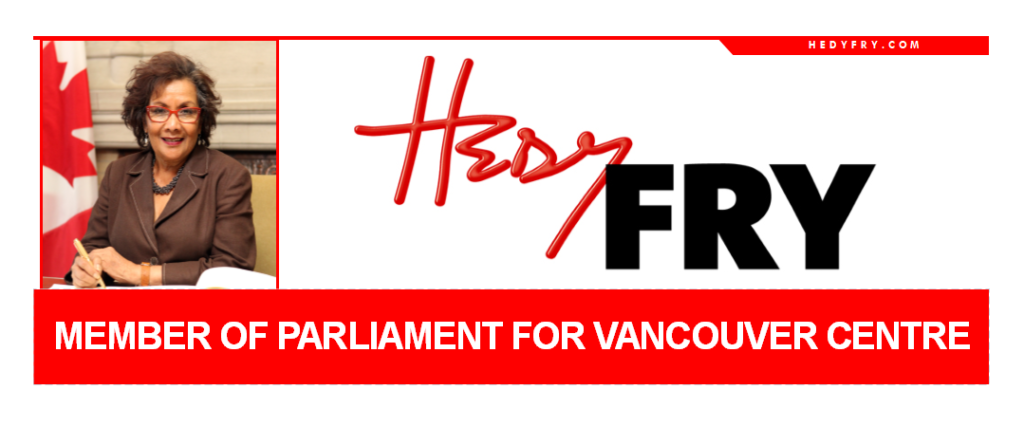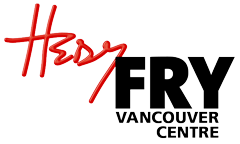
Bonjour à tous. Hello, everyone.
I want to begin by addressing the news that hundreds of unmarked graves have been found near the former residential school in Cowessess First Nation.
This was an incredibly harmful government policy. And Canadians today are horrified and ashamed of how our country behaved, and of a policy that ripped kids from their homes, communities, cultures, and languages, and forced assimilation upon them.
To the members of the Cowessess First Nation and Treaty 4 communities: we are sorry. This is not something we can fix in the past, but we can pledge to do better for today and tomorrow.
I spoke with Chief Delorme yesterday and offered all of the federal government’s continued support and partnership. This includes on healing and moving forward. And it also includes on the issue of Child and Family Services.
We know that Child and Family Services has taken children away from families and communities. I spoke to the Chief about how we can accelerate the work of Cowessess First Nation on Child and Family Services.
This news out of Saskatchewan has come on the heels of the terrible news in Kamloops. And it has caused a lot of Canadians to reflect and have difficult conversations about Canada’s history and Canada’s present.
Truth and reconciliation requires that we start with truth and recognizing the terrible mistakes of the past.
With Canada Day coming up next week, a lot of people will be reflecting on many different things – on the really tough year we had with COVID-19. And on reconciliation, and how it needs to continue.
This Canada Day will be a time of reflection on what we have achieved as a country, and what more we have to do. So as we gather with family and friends, carefully still, we need to understand and remind ourselves that Canada didn’t happen by accident and won’t continue without effort.
This Canada Day we all need to pledge ourselves to continue making Canada better, and listening to all those for whom this is not yet a day of celebration.
Yesterday, I also talked with National Chief Bellegarde. Because tragically, Cowessess is not the only place in this country where children died in the residential school system. It is not the only place where children faced abuse, loneliness, illness, and neglect.
So to all families and survivors across the country: I know that no words can right these terrible wrongs. It is with our actions that we will need to continue to recognize the truth and do everything we can to support you.
Following the discovery at the former Kamloops residential school earlier this month, we’ve made $27 million available immediately to Indigenous communities to find and honour children who died at these institutions.
For communities in Saskatchewan in particular, like Cowessess, we’ve reached an agreement with the Federation of Sovereign Indigenous Nations to provide almost $4.9 million to search for burial sites. And for people across the country, we’re providing whatever mental health support survivors, families, and communities need for healing.
Le système de pensionnats a été conçu pour effacer les langues et les cultures autochtones. Quand je discute avec des dirigeants et des membres des communautés, on parle souvent de l’importance de prendre des mesures concrètes pour réparer ces torts.
C’est exactement la raison pour laquelle on a fait adopter la Loi sur les langues autochtones, qui est une étape essentielle sur le chemin de la réconciliation. Et on continue d’aller de l’avant.
Lundi, j’ai eu une rencontre avec le commissaire et les directeurs du tout premier Bureau du commissaire aux langues autochtones. Notre travail en partenariat se poursuit afin de permettre aux cultures et aux langues autochtones de s’épanouir et de se développer.
Il en reste beaucoup à faire pour rectifier les erreurs du passé et éliminer les écarts qui existent encore aujourd’hui. On va toujours être là pour accomplir le travail necessaire.
This morning, I also want to share an update about where we are in the fight against this pandemic. And to begin with, I have some good news about vaccine deliveries.
We committed to reaching 9.1 million Pfizer doses delivered to Canada in July, as part of our summer ramp-up.
We have now received confirmation of our July vaccine delivery schedule from Pfizer, and it provides us the clear path to reach that goal. In other words, we’re keeping our commitment.
Of course, we’ve shared these delivery details with the provinces and territories, so that they can get doses into arms as soon as they arrive.
Canada is leading the world on vaccination. Over 76% of eligible Canadians have had at least a first dose, and over 26% have had a second.
Let’s keep that momentum up. Remember, you need a second dose to stay safe. This is not something you can do halfway.
So just like everyone knows by now that the mask goes over your nose and your mouth, we all have to get that second shot once we’ve had a first.
En ce qui concerne les vaccins, on va avoir reçu un total de plus de 68 millions de doses d’ici la fin juillet.
Ça fait beaucoup de vaccins. Et c’est la voie à suivre pour vaincre cette pandémie au Canada.
À ce sujet, plus tard aujourd’hui, la Dre Tam va présenter un modèle à jour des prédictions du nombre de cas pour les prochaines semaines.
Au cours des 15 derniers mois, ces modèles n’ont pas toujours donné lieu à de bonnes nouvelles. Mais parce que les gens se sont fait vacciner, parce que les gens sont restés à la maison et ont suivi les règles de santé publique, la situation actuelle est plutôt encourageante.
Si on reste sur cette lancée, en faisant attention et en se faisant vacciner, le nombre de cas pourrait continuer à diminuer. Et ça veut dire qu’on peut continuer à aller de l’avant, prudemment, avec la réouverture.
Alors faites-vous vacciner quand c’est votre tour. Ça va vous protéger et protéger votre famille et votre communauté. Et ça va tous nous permettre de nous rapprocher de la fin de cette crise.
Now, before I end for today, I want to take a moment to talk to all the kids out there who are starting their summer break.
It’s been a tough year. I’ve spent a lot of time watching my Grade 1 son Hadrien trying to stay focused on virtual school with his Lego beside him.
To all kids, you’ve been incredibly strong, you’ve figured out how to help around the house and stay focused on school. You’ve missed your friends. And you’ve made an awful lot of sacrifices as kids.
So thank you. We’re all so proud of you. You’ve earned a better summer. And yes, we’ll still have to be careful, but it will be pretty great.
To parents and teachers: thank you. I know it’s been tough for you, too. If you’re like my house, I know you’re thinking about how to get kids away from those screens that have been so integral lately.
But we have gotten through this, and things are so much better because Canadians have pulled together.
Thank you for everything you’ve done – for your kids, your students, our communities. Thank you for having their backs as we will continue to have yours.
Notre gouvernement a investi des milliards de dollars pour apporter aux élèves, aux enseignants et au personnel l’aide dont ils ont besoin. Par exemple, pour le conseil scolaire du district d’Algoma en Ontario, ce financement a permis de faire une série de mises à niveau pour améliorer la ventilation et l’éclairage.
À la rentrée, les élèves vont donc pouvoir retrouver des classes plus sécuritaires et mieux adaptées à leurs besoins.
L’année a été difficile. Mais on va continuer d’investir pour être certains que les enfants, les parents, les travailleurs – et tout le monde – puissent revenir en force.






